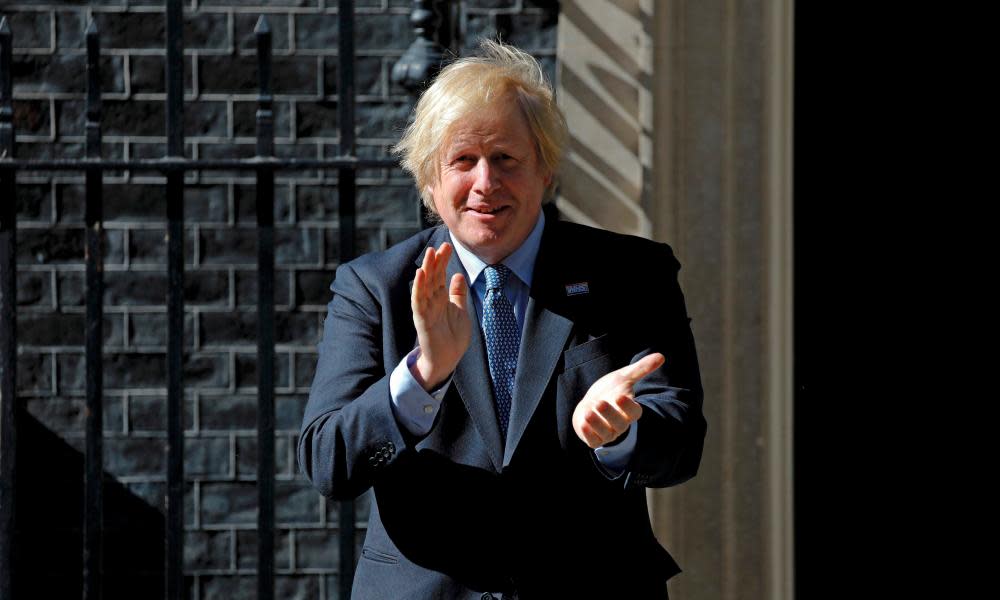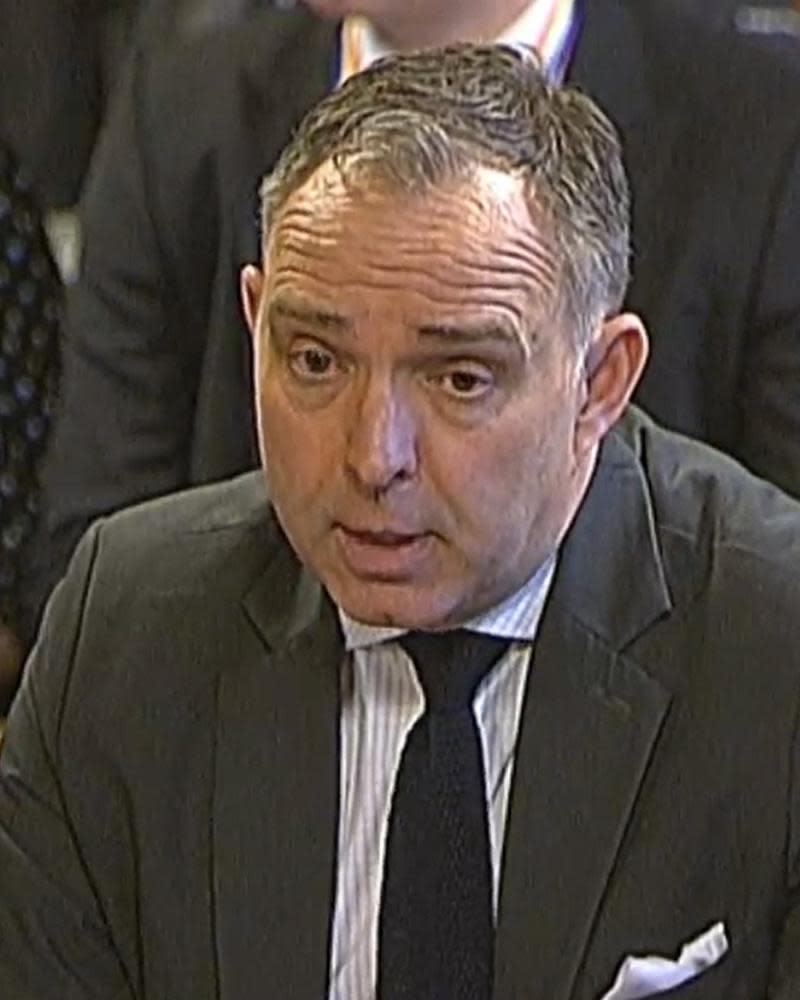Who might the government seek to blame for the UK's Covid-19 failings?

While ministers insist that it is too early to fully consider what lessons might be learned from the coronavirus outbreak, the UK’s death toll – the highest in Europe – is expected to prompt an inquiry into the handling of the pandemic.
In recent weeks, the government has been accused of seeking to pre-emptively shift the narrative on responsibility for the country’s response to the Covid-19 outbreak and blame others for what went wrong.
Care homes
Nearly 20,000 of the UK’s 44,000 confirmed coronavirus deaths have been in care homes, leading critics to claim that the government is more exposed over failures in this sector than any other area.
The most high-profile blame row came on Monday, when Boris Johnson prompted fury from care chiefs, charities, unions and MPs by saying that “too many care homes didn’t really follow the procedures in the way that they could have.”
(February 25, 2020)
Public Health England issues guidance stating that it was “very unlikely” care homes would become infected. The guidance was not withdrawn until 12 March.
(March 31, 2020)
Despite a lack of official statistics about fatalities, care homes warn that they are at “breaking point” and MHA, the country’s biggest charitable provider, says it has suspected cases in more than half of its facilities.
(April 2, 2020)
The Department of Health and Social are guidelines on discharging hospital patients into care homes states: “Negative tests are not required prior to transfers/admissions into the care home.”
(April 14, 2020)
Chief medical adviser Chris Whitty says that more than one in ten care homes (13.5%) now has at least one case of Covid-19. Whitty says: “Care homes are one of the areas where there are large numbers of vulnerable people and that is an area of risk and therefore we would very much like to have much more extensive testing.”
(April 15, 2020)
Testing is expanded into care homes but only for people with symptoms.
(April 21, 2020)
Five of the largest care home providers say they have now recorded a total of at least 1,052 deaths
(April 28, 2020)
Care home deaths are included alongside deaths in hospitals after a sharp rise of more than 4,300 deaths over a fortnight in England and Wales. Testing is extended to staff and residents without symptoms.
(May 3, 2020)
Launch of a national delivery system for personal protective equipment to care homes is hit by a delay of up to three weeks
(May 13, 2020)
Academics report that more than 22,000 care home residents in England and Wales may have died as a direct or indirect result of Covid-19 – more than double the number stated in official figures.
(May 18, 2020)
An unpublished government study which used genome tracking to investigate outbreaks revealed that temporary care workers transmitted Covid-19 between care homes as cases surged. In evidence raising further questions about ministers’ claims to have “thrown a protective ring around care homes”, it emerged that agency workers – often employed on zero-hours contracts – unwittingly spread the infection as the pandemic grew, according to the study by Public Health England.
(June 11, 2020)
A report by care homes bosses says that thousands of people lost their lives “prematurely” because care homes in England lacked the protective equipment and financial resources to cope with the coronavirus outbreak.
(July 6, 2020)
Care leaders, unions and MPs round on prime minister Boris Johnson after he accuses care homes of failing to follow proper procedures amid the coronavirus crisis, saying the prime minister appeared to be shifting the blame for the high death toll.
No 10 swiftly backtracked, claiming Johnson was saying “nobody knew what the correct procedures were” at the start of the outbreak, because of the problem of asymptomatic people spreading the virus.
Care sector representatives, however, argue that this appears to be a further attempt to avoid official responsibility. The head of one charity said Johnson was seeking to present “a Kafkaesque alternative reality” and condemning care homes for abiding by the government’s own regulations.
At the height of the pandemic in April, public health officials proposed a lockdown of care homes, but it was rejected by the government. And while a pandemic planning exercise in 2018 warned about the risk of cross-infection by care staff, there were no measures in place to prevent this. A Public Health England study found that temporary care workers had transmitted Covid-19 between care homes.
Care operators also say they have struggled significantly with low supplies of personal protective equipment (PPE) for staff, and with an inadequate system of testing. They have also expressed concern at a policy that allowed 25,000 people to be discharged from hospital into care homes without tests to ensure they were virus-free.
Public Health England
During a speech last week, Johnson recounted the early weeks of the pandemic, when, as he put it, “parts of government … seemed to respond so sluggishly that sometimes it seemed like that recurring bad dream when you are telling your feet to run and your feet won’t move”.
Friendly newspapers were briefed that, by this, the prime minister meant Public Health England (PHE), and that the quango, established in 2013, could be cut back or axed.
default
Unnamed Whitehall sources told newspapers that PHE was to blame for the slow start to Covid-19 testing in the UK, and had made other mistakes, such as missing the start of a localised resurgence of the virus in Leicester.
As public health officials hit back, complaining this was deeply unfair, Downing Street declined to confirm that PHE will remain in its current form in the future.
The civil service
While the early departure of Sir Mark Sedwill, the cabinet secretary, appears part of a broader battle between officials and Dominic Cummings, Johnson’s chief adviser, among the many anonymous briefings against the UK’s most senior civil servant was the suggestion that he had botched the response to Covid-19.

As cabinet secretary, Sedwill coordinated the work of permanent secretaries as they grappled with the coronavirus lockdown, supplies of personal protective equipment, food supplies, prison releases and coronavirus tests.
In March, unnamed Downing Street sources told newspapers that Sedwill had failed to get a grip on the crisis. Another source was quoted as saying that he had fallen out with Johnson and his aides over their strategy. In April, Cabinet Office insiders told the Guardian the claims were “shit-stirring” and “absolute crap”.
Responding to Sedwill’s departure, a former head of the civil service, Bob Kerslake, said the government seemed to be “attempting to lay the blame on civil servants and expert advisers” over coronavirus, calling this “deeply unfair and demoralising”.
Scientists
While Johnson and other ministers stood side by side with assorted scientific advisers and medical officers at the daily No 10 press conferences, it remains to be seen whether the united front will remain intact in a future inquiry.
The prime minister and others have accepted – and reiterated – that while experts can advise, it is ultimately up to politicians to decide on what course of action to take.
But there have been some attempts to turn on the scientific advice. In May, Thérèse Coffey, the work and pensions secretary, said ministers could “only make judgments and decisions based on the information and advice that you have at the time”. She told Sky News: “If the science was wrong, advice at the time was wrong, I’m not surprised if people will then think we then made a wrong decision.”
Previous governments
The lack of early mass testing for the spread of coronavirus is likely to be a key element of any future inquiry – it was halted on 12 March amid a lack of capacity – and Johnson has already signalled his intention to argue that his government is not entirely to blame for the slow start.
Speaking to the Commons liaison committee in May, Johnson said earlier administrations had not improved testing capacity after earlier virus outbreaks, which did not reach the UK. Johnson said: “The brutal reality is that this country did not learn the lessons of Sars or Mers, and we did not have a test operation ready to go on a scale that we needed.”
Global demand for PPE
One of the defining debates of the early weeks of the crisis was alarm at regular shortages of personal protective equipment, such as masks, gowns and visors, not just at care homes, but also in hospitals. At one point, NHS bosses advised staff to use plastic aprons if stocks of full-length protective gowns ran out.
In part, PPE shortages happened due to surging global demand, but a National Audit Office report concluded that officials had failed to stockpile supplies despite warnings.
There was also the confusion over a much hyped consignment of gowns from Turkey, hailed by ministers as “very significant” when they eventually arrived on a delayed RAF plane – but later found to be of insufficient quality for medical use.
In April, Matt Hancock, the health secretary, provoked anger from doctors’ and nurses’ organisations by telling NHS staff they should “treat PPE like the precious resource it is”, saying: “Everyone should use the equipment they clinically need, in line with the guidelines: no more and no less.”


